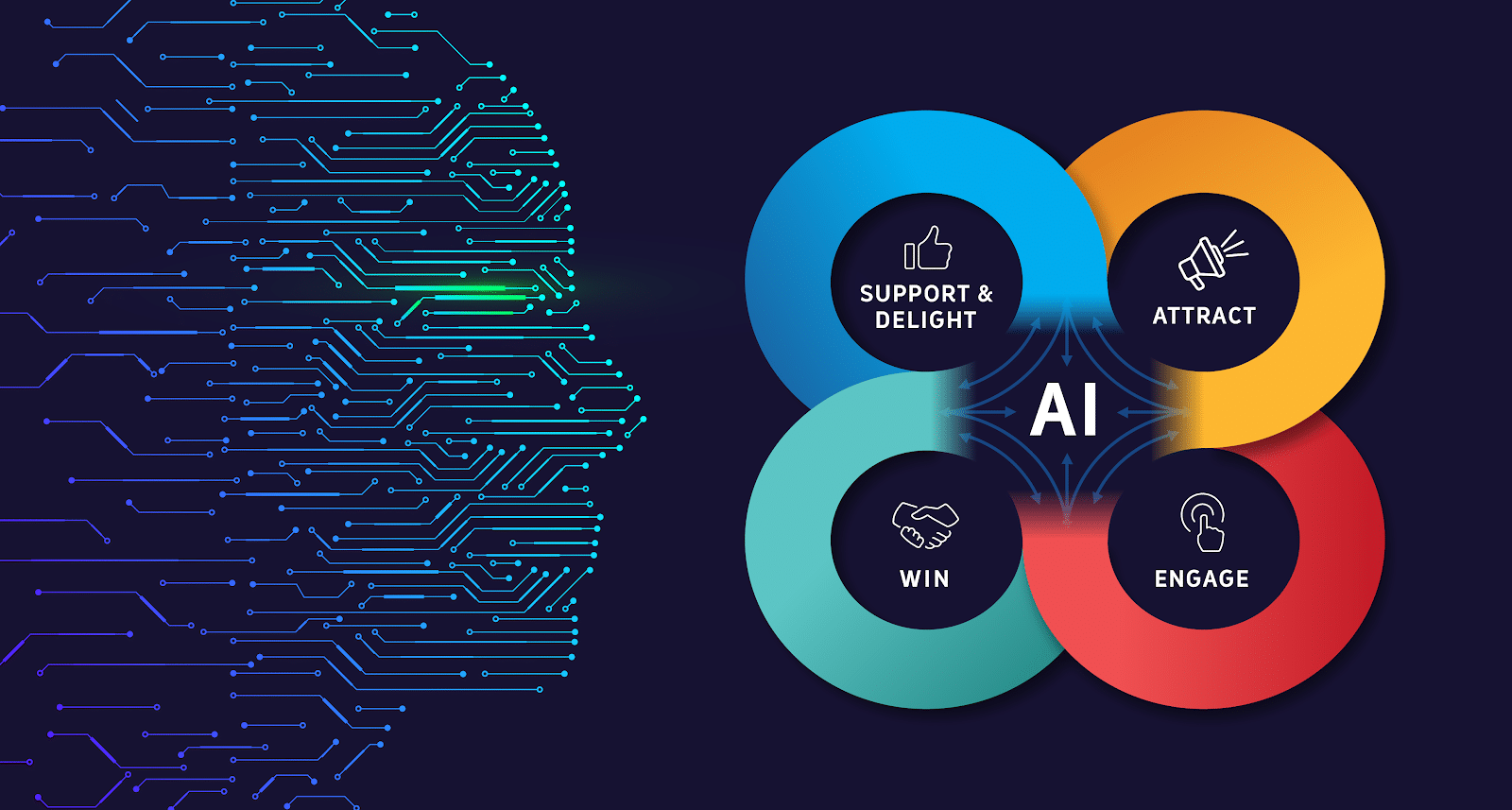
AI Trends: What Telemarketers Need to Know in 2024
May 10, 2024
AI vs. Human: Which is Better for Telemarketing in 2024?
May 13, 2024
In the ever-evolving realm of marketing, staying ahead of the curve is crucial for businesses aiming to capture audience attention, drive engagement, and ultimately, foster growth. In recent years, the integration of artificial intelligence (AI) has emerged as a game-changer, promising unparalleled insights, automation, and personalization. However, the path to leveraging AI effectively in marketing is not without its hurdles. From data complexities to ethical considerations, businesses face a myriad of challenges on their journey towards AI-driven marketing success. In this comprehensive guide, we delve into the key obstacles encountered and strategies for overcoming them.
In an era characterized by unprecedented data proliferation, businesses grapple with the daunting task of harnessing vast volumes of data from disparate sources and transforming it into actionable insights. Data quality and accessibility emerge as foundational pillars, dictating the effectiveness of AI algorithms and the accuracy of marketing strategies. However, the abundance of data does not always equate to its quality or accessibility, as businesses contend with issues such as data silos, inconsistencies, and privacy concerns. In this context, prioritizing data hygiene practices, investing in data integration solutions, and cultivating a culture of data-driven decision-making are essential for organizations seeking to derive meaningful insights and drive impactful marketing campaigns.
1. Data Quality and Accessibility
Data is often scattered across various platforms, stored in different formats, and plagued by inconsistencies, making it challenging for marketers to derive meaningful insights. To address this, businesses should invest in data management solutions that centralize and standardize data from disparate sources. Data cleansing techniques, such as deduplication and normalization, can help improve data quality, while data integration platforms facilitate seamless data exchange between systems. Additionally, implementing data governance policies ensures that data is accurate, secure, and compliant with regulatory requirements. By prioritizing data quality and accessibility, businesses can unleash the full potential of AI to drive informed marketing decisions and enhance customer experiences.
2. Algorithm Bias and Fairness
Algorithmic bias occurs when AI systems produce results that are systematically skewed towards certain groups, leading to unfair or discriminatory outcomes. To combat bias in AI-driven marketing, businesses must take proactive measures to audit and mitigate bias in their algorithms. This includes diversifying training datasets to ensure representativeness, employing fairness-aware machine learning techniques to detect and mitigate bias, and implementing post-deployment monitoring to assess algorithmic fairness in real-world settings. Moreover, fostering diversity and inclusion within the organization can help mitigate unconscious biases and promote fairness in decision-making processes.
3. Privacy and Compliance
In an era of heightened data privacy concerns and regulatory scrutiny, businesses must prioritize consumer privacy and compliance with regulations such as GDPR, CCPA, and HIPAA. This involves implementing robust privacy-by-design principles, obtaining explicit consent for data collection and processing, and providing transparency regarding the use of AI in marketing practices. Furthermore, businesses should invest in technologies such as differential privacy and federated learning to protect sensitive consumer data while still deriving valuable insights. By adhering to stringent privacy standards and demonstrating commitment to ethical data practices, organizations can build trust with consumers and mitigate the risk of regulatory penalties.

4. Talent Gap and Skills Shortage
The shortage of skilled professionals in AI and data science poses a significant challenge for businesses looking to leverage AI in marketing. To address this, organizations should invest in employee training and upskilling programs to equip existing staff with the necessary skills and expertise. Additionally, fostering partnerships with academic institutions and industry organizations can help bridge the talent gap by providing access to specialized training programs and talent pipelines. Outsourcing certain AI-related tasks to external vendors or consulting firms can also alleviate the burden on internal teams and accelerate the implementation of AI initiatives.
5. Integration and Scalability
Integrating AI solutions into existing marketing infrastructure requires careful planning and execution to ensure seamless interoperability and scalability. Adopting a modular approach to implementation allows businesses to incrementally integrate AI capabilities into their existing systems, minimizing disruption and optimizing resource allocation. Cloud-based platforms and API-driven architectures provide flexibility and scalability, enabling businesses to adapt to changing market demands and technological advancements. Moreover, investing in robust monitoring and management tools facilitates ongoing performance optimization and ensures the scalability of AI-powered marketing initiatives as the business grows.
6. ROI Measurement and Performance Evaluation
Measuring the return on investment (ROI) of AI-driven marketing initiatives requires sophisticated analytics capabilities and robust performance evaluation frameworks. Businesses should establish clear objectives and KPIs for their AI initiatives, leveraging advanced analytics techniques such as predictive modeling and attribution analysis to measure their impact on business outcomes. Implementing experimentation frameworks, such as A/B testing and multivariate testing, allows businesses to assess the effectiveness of different marketing strategies and optimize campaign performance in real-time. By adopting a data-driven approach to ROI measurement and performance evaluation, organizations can continuously refine their marketing strategies and drive tangible business results.
Conclusion: Embracing the Future with Resilience and Innovation
In conclusion, overcoming the challenges of AI implementation in marketing requires a combination of technological innovation, ethical considerations, and organizational resilience. By prioritizing data quality and accessibility, addressing algorithm bias and fairness, ensuring privacy and compliance, bridging the talent gap, fostering integration and scalability, and measuring ROI effectively, businesses can unlock the full potential of AI to drive marketing success in the digital age. Embracing a culture of innovation, collaboration, and ethical responsibility will be essential for businesses to thrive in an increasingly AI-driven marketing landscape. As technology continues to evolve, businesses that remain agile, adaptive, and ethical will be best positioned to harness the transformative power of AI and drive sustainable growth in the years to come.


